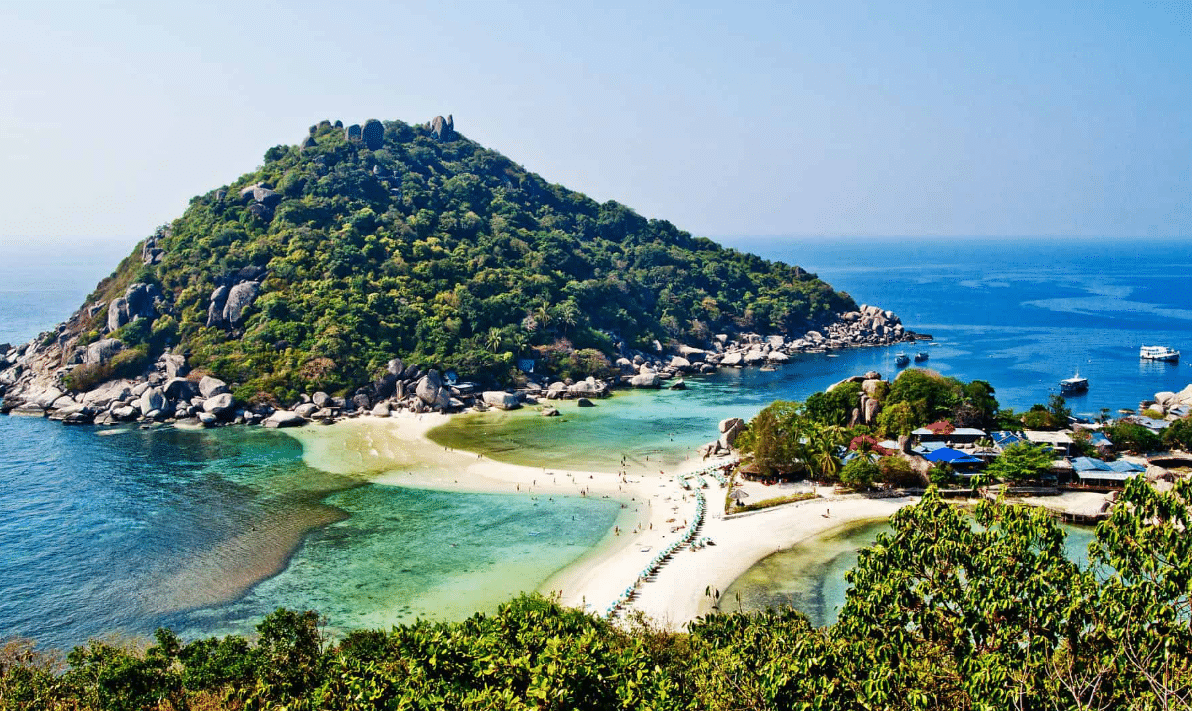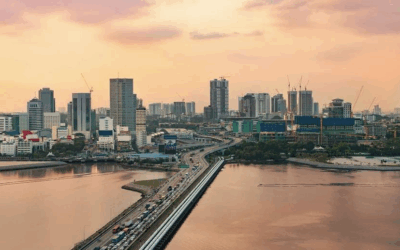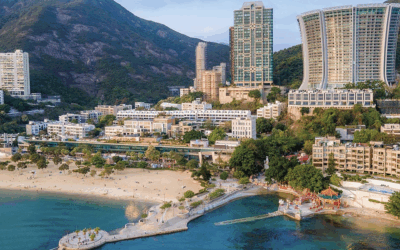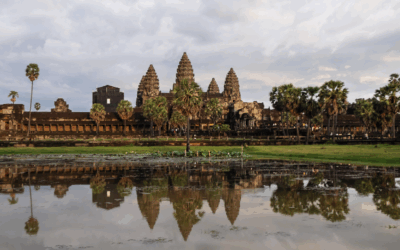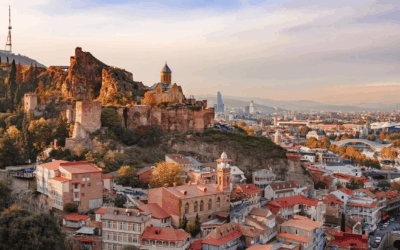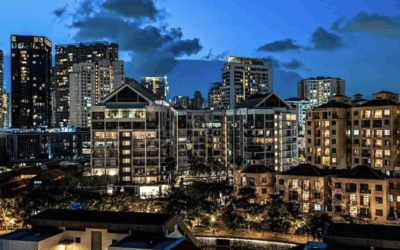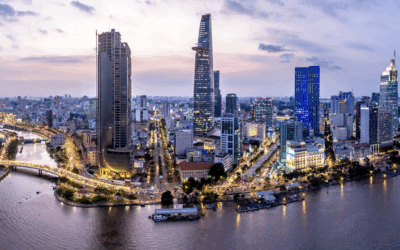Making the choice to retire in Thailand has become increasingly popular for those looking to enjoy a high quality of life in a beautiful tropical setting.
With its stunning beaches, ancient temples, friendly locals, low cost of living and excellent healthcare, Thailand offers a unique blend of modern comforts and cultural experiences for foreign retirees.
This comprehensive guide covers everything you need to know about retiring in Thailand, from visa requirements to the best locations to live.
Getting a Thai Retirement Visa
The first step to retiring in Thailand is securing the proper long-term visa. The main options are the retirement visa, the Thai Elite visa, and the marriage visa.
The retirement visa is the most common route for retirees. To qualify, you must be 50 years of age or older and meet certain financial requirements. Specifically, you must either:
- Have a Thai bank account with a balance of at least 800,000 THB (around $24,000 USD)
- Proof of a monthly pension/retirement income of at least 65,000 THB per month (around $2,000 USD)
- Combination of both pension income and bank balance
With a retirement visa, you can stay in Thailand for one year before having to renew. You absolutely cannot work while on this type of visa though (don’t try it – people have been deported before!)
Such financial requirements help ensure retirees can support themselves financially in Thailand without needing to work. Funds can come from pensions, retirement savings, investments, or other sources.
Proof of either lump sum savings or steady monthly income is needed. For Americans, social security pensions usually satisfy the monthly income rules. The financial thresholds are reviewed and updated periodically by the Thai government.
To apply for the retirement visa, you must first get a Non-Immigrant O visa good for 90 days, which allows time to obtain the full retirement visa extension.
Documentation required includes bank statements, passport, photos, and possibly a medical certificate to the Thai embassy or consulate in your home country.
Those already in Thailand on a tourist visa can skip this step and apply directly for the extension, which can be done at your local immigration office.
Requirements include passport, departure card, photos, bank statements/pension letters, proof of address, and the fee is 1900 baht. The extension is granted for one year initially and you must appear in person to renew it annually.
While a great option for long-term stays, the retirement visa does come with some limitations.
You cannot work or operate a business. The visa must be continuously maintained and extended. And you need to check in with immigration every 90 days. But overall it provides a legal path to retiring in Thailand long-term.
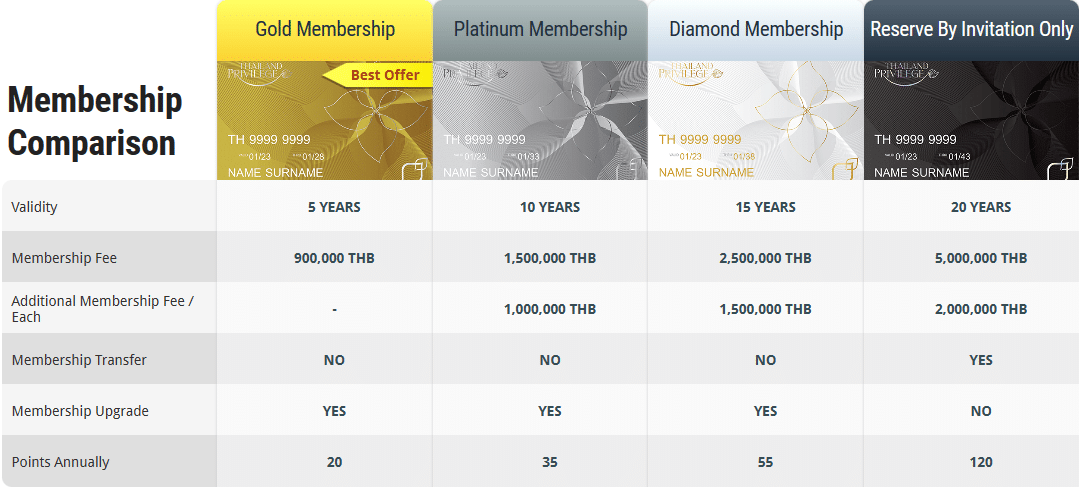
Recently, the Thai Elite Visa cost doubled. The program has becoming increasingly popular among retirees and investors alike.
The Thai Elite visa program offers 5, 10, or 20 year visas with multiple re-entry permits, airport concierge service, and other benefits, but requires a substantial upfront investment starting at around $30,000 for 5 years.
There are no age or financial requirements beyond the upfront fees. It offers more flexibility for travel compared to the retirement visa. The Elite program appeals most to frequent travelers or those wanting maximum convenience.
If married to a Thai citizen, you can apply for a marriage visa, which allows you to stay in Thailand as long as you remain married. This does not have an age or financial requirement.
You do need to show proof of marriage such as a certificate and documents from your spouse. Immigration may interview you both to ascertain it is a legitimate marriage.
When weighing visa options, consider your long-term plans, budget, and lifestyle. The retirement visa works for most retirees planning to settle in Thailand.
But the Elite visa, marriage visa, or LTR visa could be better alternatives depending on your situation. Consult a Thai immigration lawyer to evaluate the best route for you.
Best Cities to Retire in Thailand
Thailand offers many great places to settle down ranging from bustling big cities to laidback beach towns. ‘
Below, you’ll find the six most popular places to to retirement in Thailand which include:
Bangkok
As Thailand’s capital and largest city, Bangkok offers world-class shopping, dining, healthcare, and an extensive expat community. The public transportation system makes getting around easy.
Downsides are traffic, pollution, and higher costs than other parts of Thailand. The best areas for expats are downtown near the Chao Phraya River or the Thong Lor neighborhood.
Chiang Mai
The center of northern Thailand, Chiang Mai has a more relaxed pace and lower cost of living than Bangkok while still providing modern amenities. It’s surrounded by scenic mountains and Buddhist temples.
The large expat community fosters a welcoming environment. Great areas include the old city center, Ping River, and Nimman.
Phuket
Thailand’s largest island features gorgeous beaches, seaside villages, and an exciting nightlife scene. It caters well to retirees.
While some areas are among the most expensive places in Thailand, such as Rawai and Kata beach, cheaper options can be found further from the coast.
Check out Nai Harn, Kamala, Surin, and Bang Tao if you’re seeking to retire on a relative budget. Or if price is truly a constraint, consider living off the island nearby in Krabi.
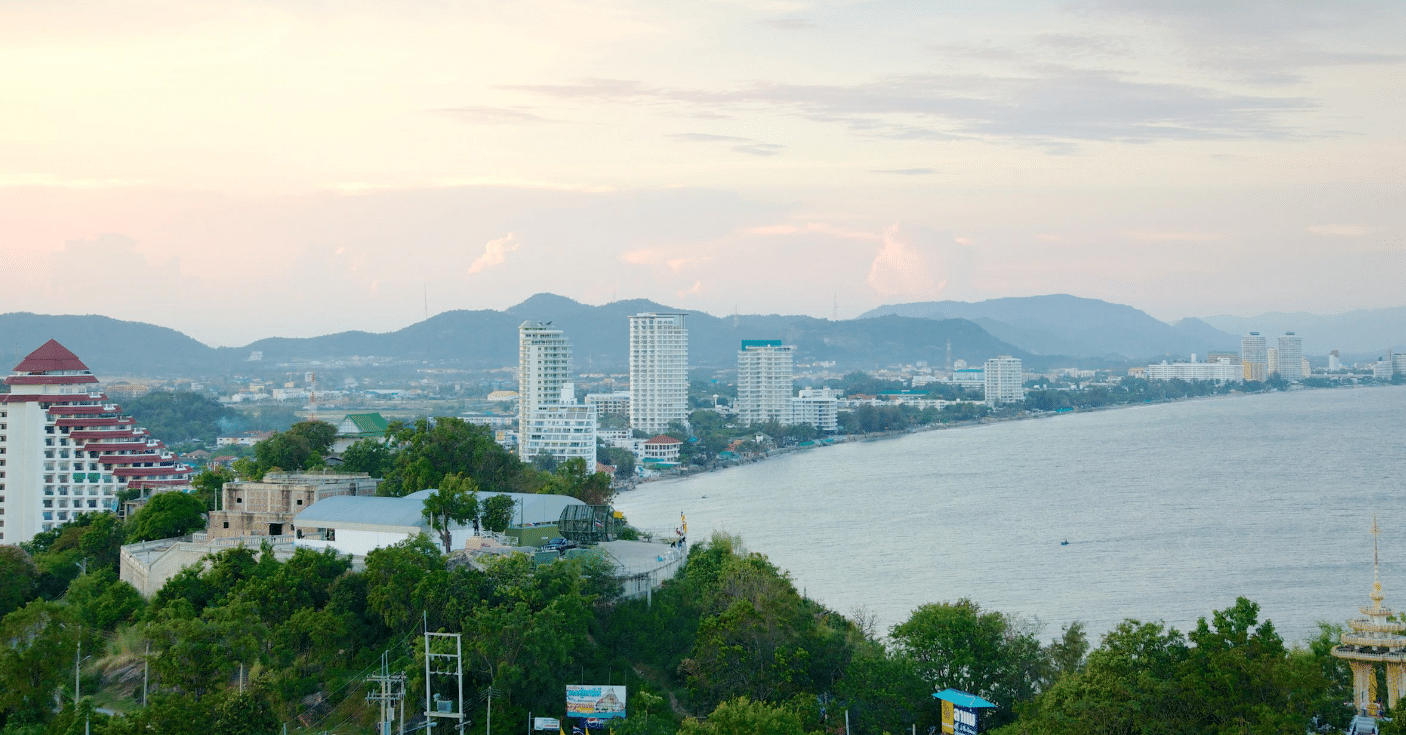
Because of Hua Hin’s convenient location within 3 hours of Bangkok, retiring in Hua Hin has become an increasingly popular choice. It’s a quieter and slightly less expensive alternative to Pattaya.
Hua Hin
A quiet beach retreat with a summer palace which occasionally houses Thai royalty, Hua Hin offers a laidback atmosphere with pristine beaches.
It has plenty of seaside restaurants and shops but a more limited expat community than other areas.
Pattaya
Located beside the Gulf of Thailand, Pattaya is known for its resorts, high-rise condos, and 24-hour entertainment scene. The expat community is very large. Prices vary widely. Look to Naklua or Pratumnak for a more relaxed vibe.
Chiang Rai
Far northern Thailand near Laos and Myanmar, Chiang Rai feels more rural and less touristy than other popular spots. It offers a very low cost of living and slower pace of life amid beautiful mountain scenery.
Wherever you choose, spend time visiting to explore neighborhoods, tour properties, and get a feel for the place before committing long-term. Talk to expats already living there to gain insider knowledge.
Thailand is home to lots of diversity, and indeed, has something for everyone. Choose the exact place you’ll retire based on the lifestyle you want.
Is Healthcare in Thailand Good?
Thailand offers excellent healthcare, with world-class hospitals and services at very affordable prices compared to the West.
Many hospitals like Bumrungrad, Samitivej, and Bangkok Hospital are accredited by Joint Commission International (JCI) and have English-speaking doctors and staff.
However, retirees must have private health insurance and will not qualify for public healthcare programs. Shop multiple providers for the best coverage and premiums.
As a retiree, look for a policy with strong hospitalization benefits, coverage for prescriptions, exams and procedures, emergency evacuation, and international claims service.
Policies can range from around $1,000 to $4,000 per year depending on your age and desired benefits. Pre-existing conditions may affect eligibility or have limited coverage.
Thailand’s major hospitals are concentrated in Bangkok but quality care can be found elsewhere too. The standard of care is high and costs are very reasonable compared to the West.
For example, a doctor’s office visit may cost $30-50 USD, while procedures like MRIs run just a few hundred dollars. With the right insurance plan, Thailand is a great place to retire for affordable, high-quality healthcare.
Cost of Living in Thailand
The overall cost of living in Thailand is low compared to Western countries, which is a major appeal for retirees.
According to Numbeo, consumer prices in Thailand are on average 36% lower than in the United States. Rent, dining, entertainment, and services are significantly cheaper. High-end imported goods can still be costly though.
How much does it cost to retire in Thailand? Well, it widely depends on where you’ll live and how luxuriously. With a modest budget of around $2,000 USD per month, a retired couple can live very comfortably in much of Thailand.
Generally speaking, budget retirees can get by on less than $1,000 per month in rural areas. Those looking for more luxuries or accommodations in prime tourist spots may need $3,000 or more.
Housing is typically the biggest expense. A nice 1-bedroom apartment can cost between $400-$600 per month in many areas, while upscale properties in Bangkok run over $2,000 per month.
Groceries may cost 20-50% less than the West depending on your diet. Eating local Thai food is very economical. Activities like golf, movies, and massage are quite affordable.
International airfares getting to and from Thailand can be pricey though, and importing foreign goods has duties that makes some items more costly. Especially western food.
Location will impact your cost of retirement in Thailand more than anything. For example, rent in Pattaya costs about half as much compared to central Bangkok or Phuket.
If you’re living in a third-tier city like Khon Kaen or Hat Yai, it’ll get even less expensive. And if you’re living out in a Thai village out in the middle-of-nowhere, prices will become cheaper still.
Overall, Thailand offers excellent value for retires. Remember to do your homework when budgeting for the lifestyle you want.
Culture and Living in Thailand
It’s probable that life moves at a more relaxed pace in Thailand when compared to your home country.
Generally speaking, Thai people are gracious and welcoming to newcomers. Buddhism and family are cornerstones of the culture, which focuses on community and enjoying life day-to-day.
Thais place importance on having “sanuk” – finding pleasure, fun and joy in whatever you are doing. Social lives tend to revolve around family, friends, and community activities.
Culturally it is important to remain humble, calm, and avoid confrontation. Thais value harmony and cooperation.
Seniority and social rank are also respected. As a foreigner, be open-minded, avoid public criticism or anger, and show respect for Thai culture and people. In turn, you are likely to make friends quickly.

